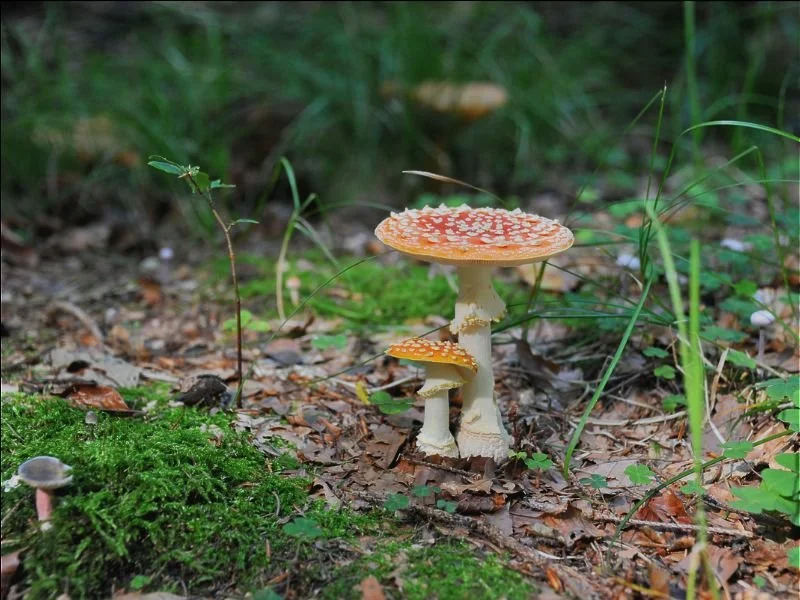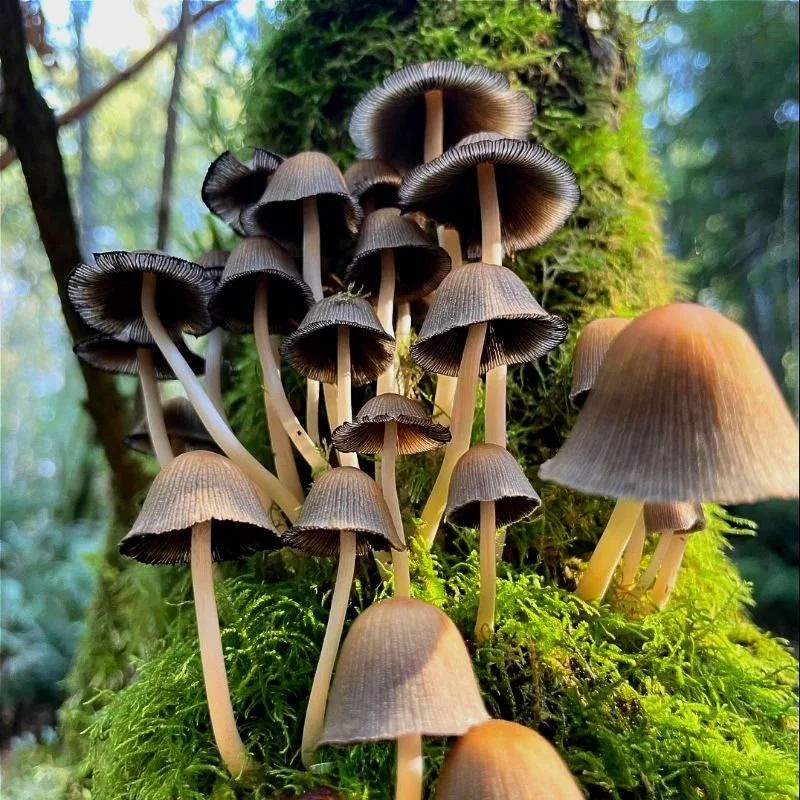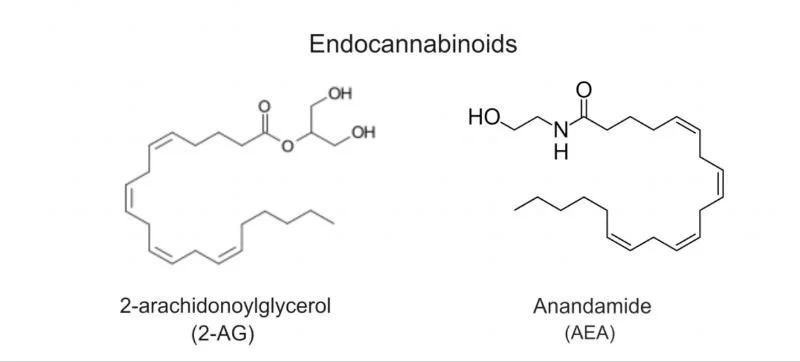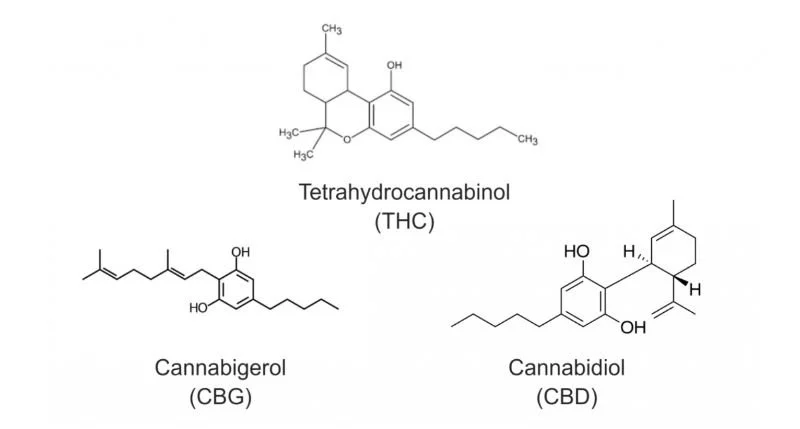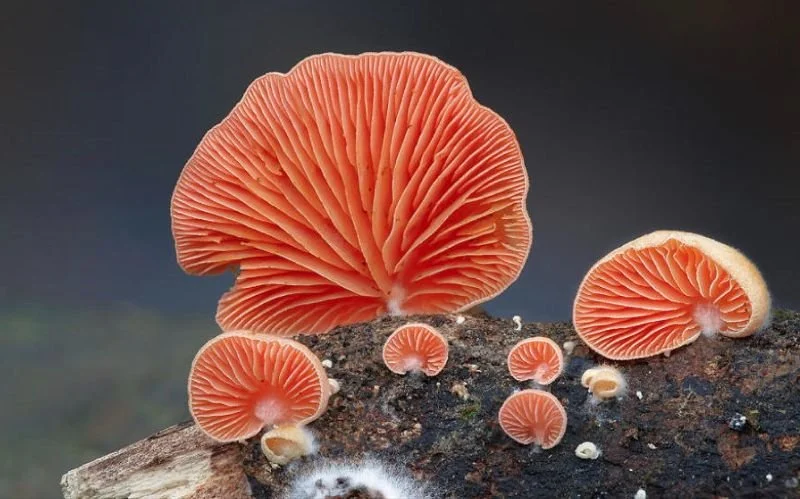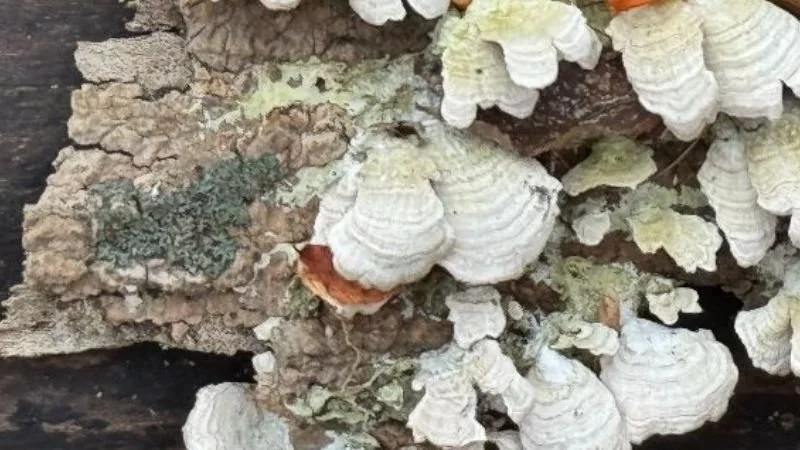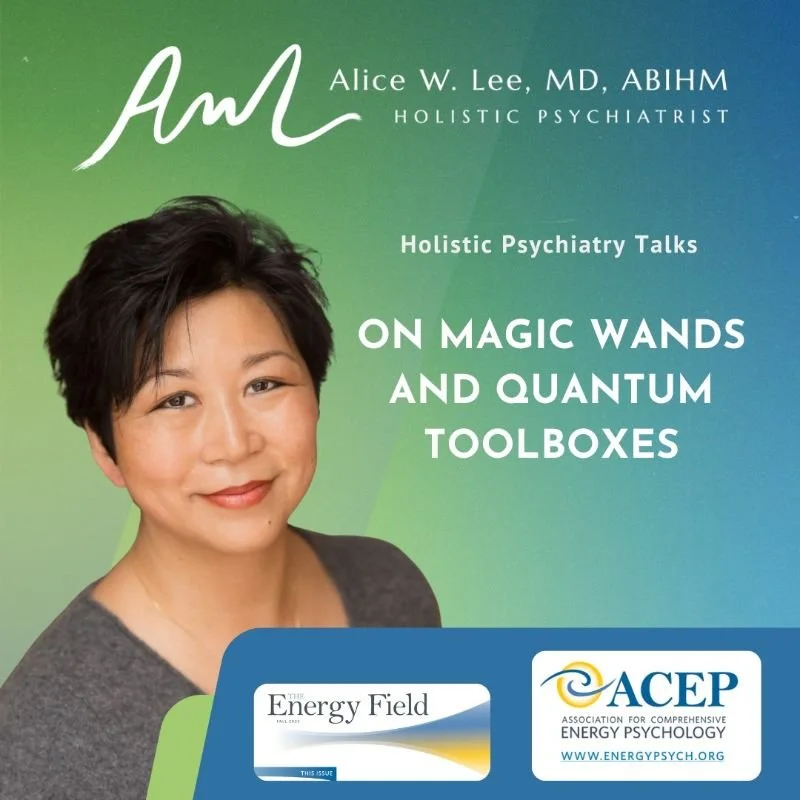Holistic Answers to Misunderstood
and Mistreated SymptomsThursday, November 20, 2025
Issue #255
Amanita
Hello there!
When patients have been on a carousel of medications for decades without finding relief, there may be a deficiency in a hidden (less well-known) neurotransmitter system that could be undermining mental health.
Why would this neurotransmitter system be overlooked? How can we support patients holistically to restore and improve this neurotransmitter system, rather than treat it with another drug? Read on for the answers to these important questions!
Please join me on Saturday, December 6 at 1 pm Eastern Time for an hour group Zoom session for a Q & A on holistic mental health. See the invitation at the end of this article after the references.
Have a great week!
Coprinellus micaceus (photo by Erin Thomson)
The Hidden Neurotransmitter System
Holistic Answers to Misunderstood
and Mistreated Symptoms
I learned about this "new" neurotransmitter system at a holistic and integrative mental health conference many years ago, but failed to understand its prevalence or significance. Scientists were learning more about it, but not as much was known about this system as other neurotransmitter systems. In fact, in Wikipedia, it was called a "mysterious neurotransmitter system."
And it's easily forgotten and remains untreated despite years of psychiatric treatment. Why? Because there is no psychiatric medication, not in the typical sense, for treating it.
What is the name of this system? It's the endocannabinoid system--named after cannabis, which binds to its receptors.
However, the cannabinoids found in marijuana are not bioidentical to the endocannabinoids that the body naturally produces. The innate cannabinoids look like this:
Two main endocannabinoids
Illegal or legal, the most commonly used forms of cannabinoids are from plants--phytocannabinoids--and they are not the same as endogenous cannabinoids. Here are some commonly studied ones:
Phytocannabinoids that act on the cannabinoid system
In an Overview of the Endocannabinoid System, we learn that the endocannabinoid system (ECS) affects the neurological and immune systems. It is different from other neurotransmitter systems. Instead of being made of amino acids, the endocannabinoids are made from fatty acids. Instead of being released from the presynaptic neuron, it is released from the postsynaptic neuron and travels back to the presynaptic neuron, where it binds to cannabinoid receptors. Rather than triggering an activity, it inhibits activity.
How can the endocannabinoid system be naturally supported?
In researching nutritional supports for the endocannabinoid system, I found the following to be helpful:
PEA (Palmitoylethanolamide)
foods high in arachidonic acid (meats, poultry, fish, eggs)
Foods high in linoleic acid (omega 6, nuts, seeds, vegetable oils, meats, eggs, tofu)
Omega 3 Fatty Acids
Beta-Caryophyliene (BCP)
Prebiotics (Inulin, FOS, resistant starch) and Probiotics (Lactobacillus acidophilus, L. Plantarum, Bifidobacterium longum)
Echinacea
Dark chocolate (70% cocoa or higher)
Magnesium
Curcumin
Resveratrol
Flavanoids
Green Tea Catechins
Vitamins B6, B9, B12, and D
Ashwagandha
Other antioxidant-rich plants
Lifestyle factors that help the ECS system:
exercise
quality sleep
stress reduction
Lion's Mane, a mushroom that is good for brain health
How, why, and when did I turn to the endocannabinoid system for answers to my patients' chronic mental health problems?
Though I knew about the existence of the ECS and had been exposed to some of its biochemistry, I didn't focus on it as I did with other neurotransmitter systems. The main reason is that psychiatrists don't have a medication that targets this system.
However, there were four reasons I turned my attention to this system:
Patients who didn't respond well to a carousel of psychiatric medications such as SSRIs, antipsychotics, mood stabilizers, or benzodiazepines reported improved mental health when they used phytocannabinoids, typically marijuana.
Patients who never used phytocannabinoids, were vegetarians, and came from cultures that used a lot of curry (curcumin) in traditional cooking, were suffering from mental illness when exposed to a Western diet lower in curcumin.
Patients who had significant problems with OCD symptoms (anxiety), aches and pains (inflammation), movement issues, and didn't respond to SSRIs seemed to suggest a different underlying cause for their severe symptoms.
Patients withdrawing from marijuana after chronic abuse, tolerance, and dependency experienced withdrawal symptoms similar to patients' symptoms who didn't respond to the typical psychiatric medication interventions.
Once I started using my criteria-based energy testing method to assess these patients who weren't responding to SSRIs, SNRIs, mood stabilizers, antipsychotics, or benzodiazepines, I discovered that many of them suffered from inadequate levels of endocannabinoids.
Crepidotus
Why don't we just take CBD oil instead of trying to enhance the production of the innate endocannabinoids in our bodies?
Here are a few reasons why:
The use of a xenobiotic, not bioidentical but a foreign substance, leads to increased hypersensitivity reactions, inflammation, and adaptive changes in that neurotransmitter system.
Marijuana and CBD oils are drugs, and like many drugs, can lead to tolerance and dependency.
CBD inhibits the reuptake of endocannabinoids. Inhibiting the reuptake of neurotransmitters generally leads to decreased storage levels of that neurotransmitter due to enzymatic degradation in the synaptic cleft. Decreased storage levels of a neurotransmitter translate into greater dependency on the drug to support the neurotransmitter system. A problem that I've seen with other psychiatric medications.
Marijuana and CBD oils often lead to dependency, side effects, and withdrawal side effects because they are drugs and do not increase optimal levels and functioning of the endocannabinoid system.
Trichaptum
How did supporting the endocannabinoid system help my patients improve their mental health?
I was able to start some of my patients on PEA and other supplements that helped to strengthen the endocannabinoid system. One particular patient stood out. She had come off 15 mg of Lexpro after one failed taper (under another psychiatrist) in 2021. She began taking the medication in 2018.
During the gradual taper, I supported healing of her GI, detoxification, genetics, reproductive hormones, serotonin, and cortisol system. Though the taper went smoothly, she began to struggle with anxiety and sleep about 2-3 months after the medication was stopped. Given that I had done everything that I thought was needed for a safe and comfortable taper, I didn't know what else to do until I began to treat her endocannabinoid system.
With the criteria-based energy testing approach, I found that her endocannabinoid system was functioning at around 25% of optimal levels. We did some energy work to support her endocannabinoid system and added PEA Soothe by Neurobiologix and black currant seed oil (she was a vegetarian). She was already on the proper B and D vitamins as well as a vegetarian form of Omega 3.
The next week, she reported that she had a "great week." She attributed it to the endocannabinoid support she received both through energy work as well as through the supplements.
I have just started working with a new patient (35 years old). Currently, she smokes marijuana daily and has been on a carousel of psychiatric medications (Lamictal, Klonopin, Ritalin, Effexor, Cymbalta, Wellbutrin, and Ativan) since her 20s. She had been prescribed 150 mg of Zoloft for six years, but never felt good on it. It "numbed" her and interfered with her ability to feel her emotions. She had tapered her Zoloft through a conventional psychiatrist, which led to severe withdrawal symptoms. She reported to me that marijuana normalized her mood, and when she was using it, she felt motivated to get things done.
Her psychiatric history reflects someone who may have had a chronically deficient endocannabinoid system. I believe that she also has other underlying causes for her mood and physical health problems, but she will need endocannabinoid support in addition to healing from those other underlying causes as well.
The endocannabinoid system is no longer just sitting on my shelf anymore. I realize now that deficiencies in this system result in many symptoms that get treated with SSRIs, benzodiazepines, or even antipsychotics. Awareness of the ECS's importance in mood, sleep, appetite, logical thinking, and pain encourages me to learn more about this system in the years to come.
Have a wonderful week!
Helpful References:
1. Bosch-Bouju, C., & Layé, S. (2016). Dietary omega-6/omega-3 and endocannabinoids: Implications for brain health and diseases. In Cannabinoids in health and disease. InTechOpen. https://doi.org/10.5772/62498
2. Garani, R., Watts, J. J., & Mizrahi, R. (2021). Endocannabinoid system in psychotic and mood disorders: A review of human studies. Progress in Neuropsychopharmacology & Biological Psychiatry, 106, 110096. https://doi.org/10.1016/j.pnpbp.2020.110096
3. Maccarrone, M., & Finazzi-Agrò, A. (2003). The endocannabinoid system, anandamide and the regulation of mammalian cell apoptosis. Cell Death and Differentiation, 10, 946–955. https://doi.org/10.1038/sj.cdd.4401284
4. Saleh-Ghadimi, S., Kheirouri, S., Maleki, V., Jafari-Vayghan, H., & Alizadeh, M. (2020). Endocannabinoid system and cardiometabolic risk factors: A comprehensive systematic review insight into the mechanistic effects of omega-3 fatty acids. Life Sciences, 250, 117556. https://doi.org/10.1016/j.lfs.2020.117556
One Hour Group Q & A Zoom Session
With Alice W. Lee, MD
Let's meet and talk about holistic and integrative psychiatry. Ask your questions and get the answers you need to help you with your healing journey!
Date: Saturday, December 6, 2025
Time: 1 pm Eastern Time
Fee: $ 25.00
Session: A one-hour group consultation covering questions from members of the group on any topic related to holistic and integrative approaches to mental health. Please include your email address and phone number during payment so that I can send you the link and add you to the list of attendees.
The Zoom link for the session will be sent to you after payment. Thank you!
I'm proud and excited to share an article that I wrote about my psychiatric practice, which was recently published on the front page of The Energy Field, a quarterly publication of the Association for Comprehensive Energy Psychology (ACEP). The article is called On Magic Wands and Quantum Toolboxes. If you ever wish to share a summary of my work with a friend or family member, this article may be a great one that summarizes my work well.
Be sure to subscribe to my podcasts and updates!
To sustain my work as a holistic psychiatrist and support my efforts to improve psychiatric treatment for all through my podcasts, articles, website, and YouTube channel, please show your appreciation and help champion holistic psychiatry by clicking HERE to contribute!
Click here to listen to all of The Holistic Psychiatrist Podcast episodes
Contact here to email Dr. Lee directly.
If you like this podcast, please give it a 5-star rating and share this with others! Thank you!
For more about Dr. Alice W. Lee, please visit:
Website: www.holisticpsychiatrist.com
More stories and insights: Holistic Articles
YouTube: The Holistic Psychiatrist
To schedule consultations or appointments, call Dr. Lee's office at 240-437-7600
Dr. Lee is located in downtown Salt Lake City, Utah.
The content provided by this podcast is for informational purposes only and has not been approved by the U.S. FDA. This podcast is not intended to provide personal medical advice, which should be obtained from a medical professional.
